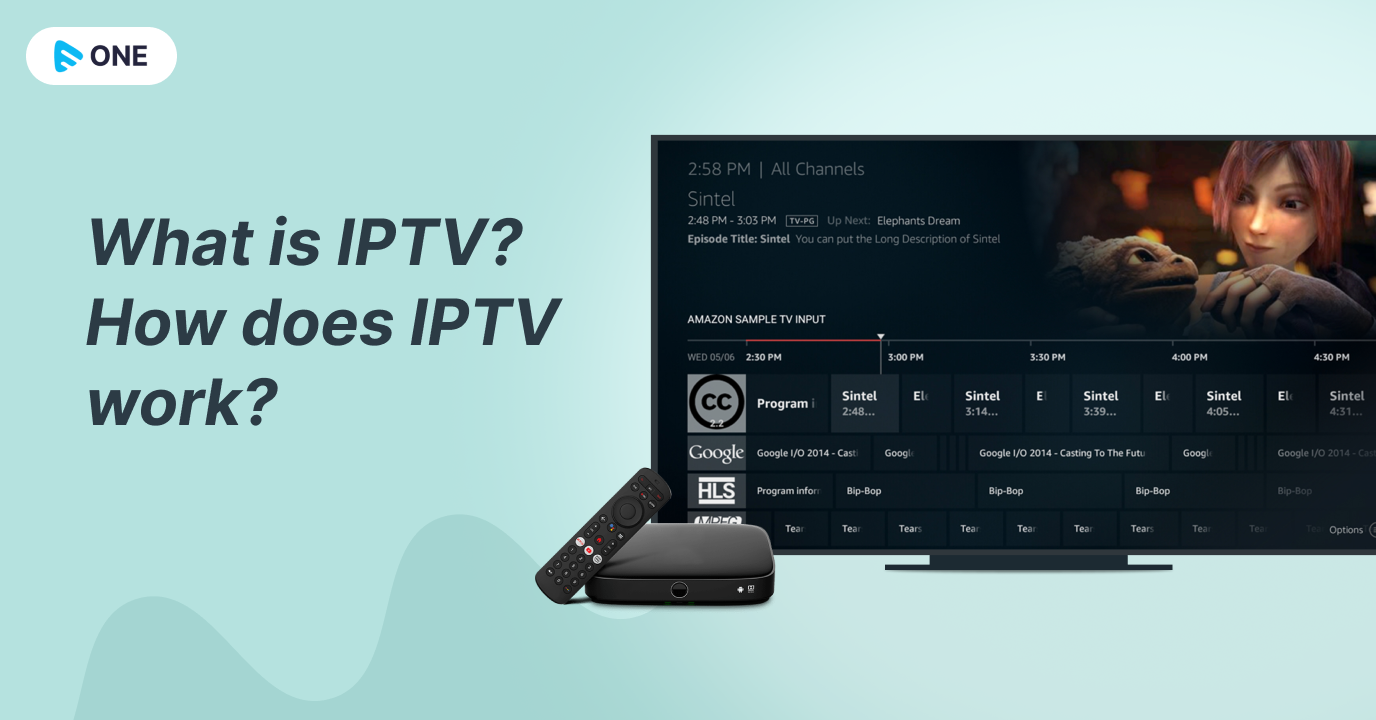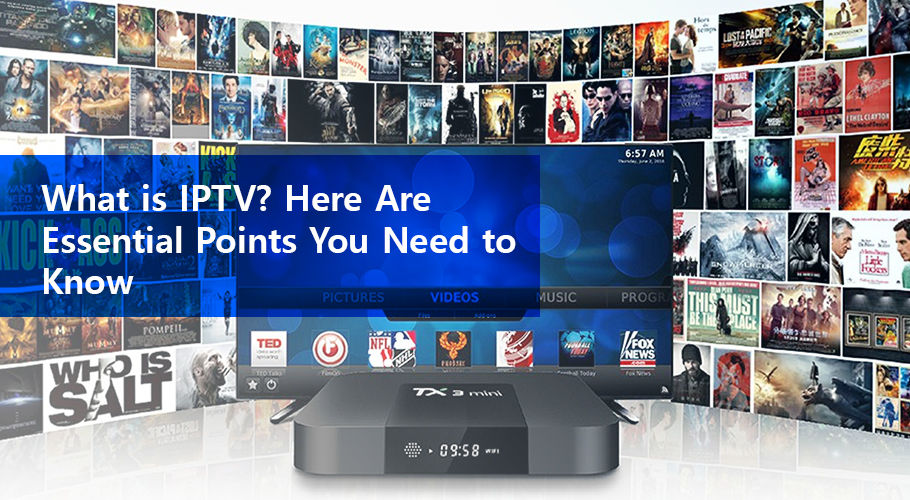IPTV-- Top Advantages of Switching to Net TV
IPTV Explained: Why It's Reinventing the Method We Enjoy TV
The appearance of Web Method Tv (IPTV) signifies a crucial shift in just how target markets engage with web content. As we discover the complexities of IPTV, it comes to be apparent that this advancement is not simply a pattern; it poses substantial effects for the future of television intake and the landscape of digital enjoyment.
What Is IPTV?
IPTV, or Internet Procedure Tv, is a technique of supplying television material over the net instead of through standard satellite or cable styles. This cutting-edge method makes use of internet method networks to transmit video information, permitting audiences to access a large array of programming directly using their internet connection. Unlike traditional broadcasting, which depends on radio waves or cable facilities, IPTV makes it possible for the streaming of content in an extra user-centric and versatile manner.
One of the essential advantages of IPTV is its capacity to provide on-demand accessibility to a huge library of programs, films, and live programs. Customers can enjoy customized viewing experiences, consisting of the option to pause, rewind, or record content. Additionally, IPTV services commonly include interactive attributes, such as video clip as needed, catch-up tv, and the capacity to access multiple devices concurrently.

Just How IPTV Works

The process begins with web content gathering, where various television networks and programs are assembled onto a centralized server. From this web server, the web content is encoded into digital styles ideal for streaming. When a user chooses a program, the IPTV solution retrieves the proper information packets from the server and sends them to the user's gadget.
IPTV frequently includes interactive functions such as gain access to, rewind, and time out to a digital collection, improving user involvement. In general, IPTV stands for an advanced integration of modern technology that changes traditional tv viewing right into a much more individualized and dynamic experience.
Advantages of IPTV
As audiences progressively seek flexibility and personalization in their home entertainment options, IPTV uses a variety of advantages that accommodate these demands. One of one of the most substantial benefits is the ability to access web content on different gadgets, including smart devices, tablet computers, wise TVs, and computer systems - Iptv. This multi-device compatibility enables individuals to enjoy their favorite programs and films anytime, anywhere, enhancing their watching experience
Moreover, IPTV gives an extensive collection of on-demand content, making it possible for clients to select what to watch, when to see it, and exactly how to watch it. This contrasts with typical broadcasting techniques, where viewers are typically constrained by fixed timetables. In addition, IPTV services regularly use personalization attributes, such as tailored recommendations based upon viewing behaviors, permitting users to discover brand-new content matched to their choices.
Moreover, IPTV normally includes advanced features like cloud DVR abilities, allowing users to record and keep programs for later watching. Improved interactivity, such as the ability to stop, rewind, or fast-forward web content, additional improves the navigate here watching experience. Iptv. Collectively, these benefits position IPTV as an engaging alternative to standard television, fulfilling the evolving expectations of today's audiences
Contrast With Traditional TV
Standard television and IPTV present unique seeing experiences, each accommodating various target market preferences. Standard television relies on terrestrial, cable, or satellite signals, using a fixed schedule for broadcasting. Viewers are usually bound to specific time slots to watch their favorite shows, which can be inconvenient in today's fast-paced environment.
On the other hand, IPTV delivers web content via the internet, permitting customers to stream programs and flicks on-demand. This adaptability makes it possible for customers to enjoy material at their comfort, removing the constraints of an established routine. Additionally, IPTV services usually offer accessibility to a wider range of networks and web content, consisting of international programs and specific niche categories that traditional cord packages may not use.
In addition, the interactivity of IPTV boosts user involvement, enabling features such as document, time out, and rewind capacities that typical TV lacks. Customers can additionally access supplemental you could check here web content, including in-depth program overviews and visitor rankings, enriching the overall viewing experience.
Eventually, while typical television stays a staple for many audiences, IPTV's versatility and wealth of material make it a significantly popular option, attracting those seeking more control over their watching behaviors.
Future of IPTV
The future of IPTV appears appealing, driven by improvements in innovation and changing customer preferences. As broadband facilities continues to improve around the world, IPTV services are positioned to supply higher-quality video clip web content with marginal buffering and improved customer experiences. This progression is complemented by the spreading of wise devices, allowing visitors to gain access to IPTV content on mobile phones, tablets, and clever Televisions, therefore enhancing convenience and wheelchair.
Additionally, the integration of expert system and maker discovering right into IPTV platforms is expected to revolutionize content distribution. Personalized click over here suggestions based upon checking out routines will certainly enhance customer engagement, making it simpler for subscribers to uncover relevant material. In addition, the incorporation of increased reality (AR) and virtual fact (VIRTUAL REALITY) technologies holds the possible to develop immersive checking out experiences that typical tv can not match.
The increase of subscription-based designs and ad-supported streaming solutions shows a change in exactly how customers agree to spend for web content, further fueling IPTV's growth. As even more consumers seek versatility and modification in their checking out practices, IPTV is likely to come to be a dominant force in the enjoyment landscape, improving exactly how material is generated, distributed, and eaten in the coming years.
Conclusion
In conclusion, IPTV stands for a transformative improvement in television intake, supplying audiences unprecedented versatility and control over their checking out experiences. As technology proceeds to progress, the capacity for IPTV to additional influence media intake patterns and improve the entertainment landscape remains substantial.
The development of Web Protocol Tv (IPTV) represents a crucial shift in how target markets involve with material.IPTV, or Web Procedure Tv, is a technique of providing tv material over the web instead than with conventional satellite or cord layouts.Using a network of net procedures, IPTV provides television material via a series of well-defined procedures. Additionally, IPTV services regularly offer personalization attributes, such as customized suggestions based on watching practices, enabling individuals to uncover brand-new material suited to their preferences.
Additionally, IPTV services often offer accessibility to a wider selection of networks and web content, consisting of international shows and particular niche styles that conventional wire bundles might not supply.